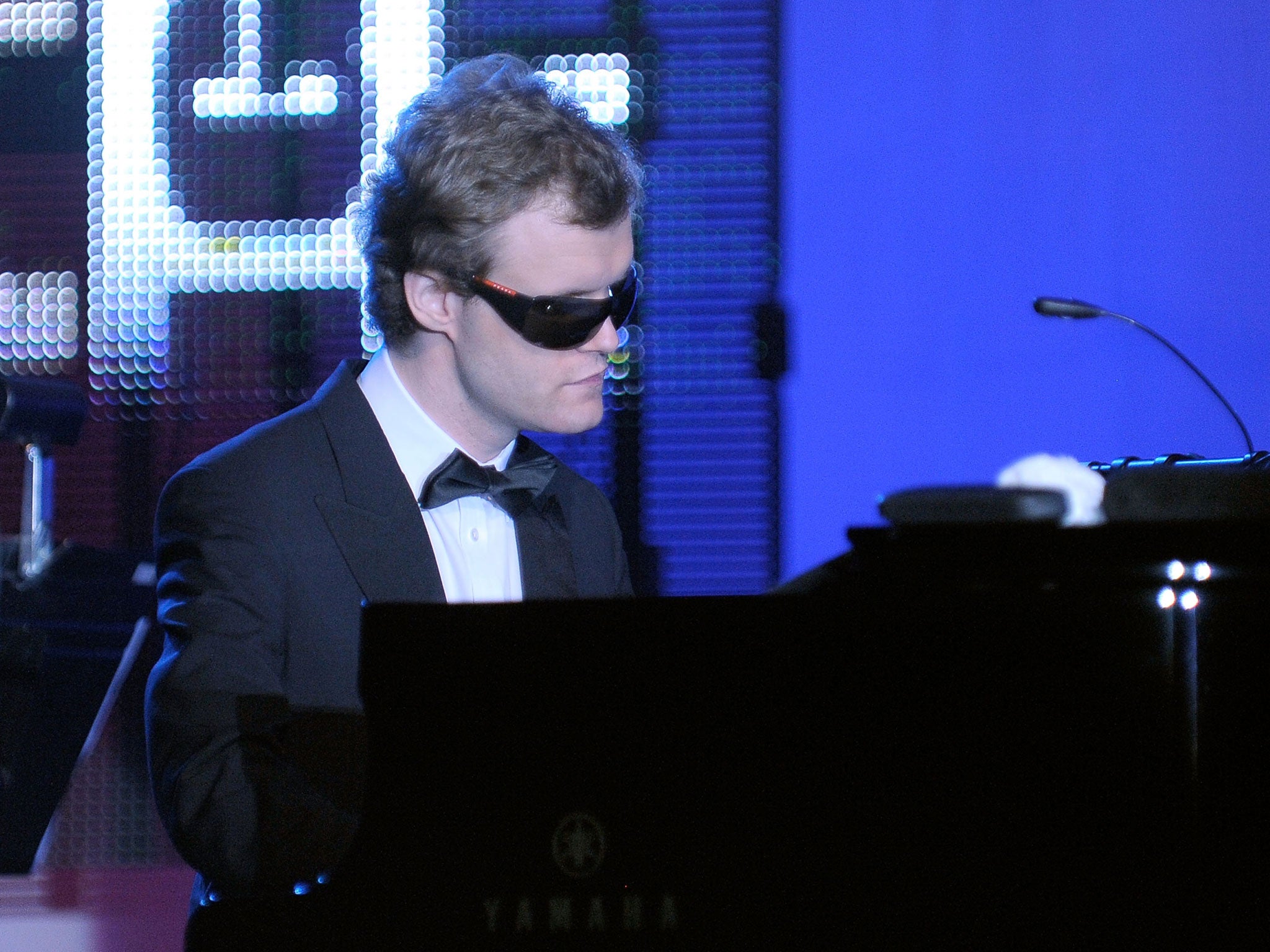The blind pianist who led our reporter to a closed courtroom
The Court of Protection was a little known part of the justice system until this paper intervened

In May 2009, while I was a news reporter for The Independent, I was asked to interview a remarkably talented pianist named Derek Paravicini. Born 25 weeks premature, he was blind, autistic and had severe learning difficulties. Despite this misfortune he had earned the nickname “the human iPod” because of his extraordinary musical gift of being able to play any piece of music after hearing it only once.
As I was researching and writing the story I spoke at length to Derek’s first piano teacher and mentor, who recalled his astonishment at uncovering his pupil’s wonderful talent. During our conversation, he told me that Derek was currently the subject of a court case about who should be managing his affairs as he became an increasingly high-profile celebrity.
“Which court is that at?” I asked. “It’s called the Court of Protection,” he said. I’d never heard of it, but soon discovered it had been set up a few years earlier under the Mental Capacity Act, and arbitrated on the affairs of mentally incapable people.
I didn’t mention the court case in my piece about Derek. But the next day I began to make inquiries about attending, and was amazed to discover that no journalist had ever been to the court – all of its cases were heard behind closed doors. To me, this was baffling, and went against everything I’d ever been told about British principles of open justice.
While I could understand why disabled people might lack the capacity to consent to having their names and pictures appearing in the press, it seemed odd not to try to reach some sort of compromise which protected them while still allowing for the scrutiny of the media – on the court itself and the public authorities whose decisions were responsible for many of the cases being brought.
The Independent’s legal department took up the baton, and with the support of other media groups began to fight for our right to attend, using Paravicini as a test case. Almost exactly a year after the original interview ran, we won that right and became the first news organisation to report on a case at the Court of Protection.
The floodgates had opened, and since then a string of cases have been reported by this newspaper and others. The case of Steven Neary, a young autistic man found to have been unlawfully deprived of his liberty by Hillingdon Council, highlighted the importance of public authorities being held to account by the media. His father Mark credited the media coverage of his case for Steven’s return home.
Since 2009, The Independent has successfully applied to attend eight private COP hearings, and has published stories about ordinary people and what becomes of them once they are no longer able to make decisions about their own welfare. Time and again, Court of Protection judges have agreed that it can only be a good thing to shine a light on the agonising decisions the court faces, showing that the principle of “open justice” should also apply to these sensitive cases.
The concerns of Chris Grayling, the Justice Secretary, seem to have been prompted by the case of Wanda Maddocks, 50, who recently became the first person known to have been imprisoned by the Court of Protection when a judge handed her a five-month sentence for contempt of court.
Yet The Independent recently attended and reported on a similar current case in which a judge held back from jailing a relative for contempt because of doubts over their own mental capacity. So the decisions can go both ways – there is no blanket secrecy. It can only be a good thing that Mr Grayling has called on Lord Justice Munby, the President of the Family Division, to review proceedings at the Court of Protection and make them more “transparent”. But it is only fair to him to reveal that he is already looking at correspondence from The Independent asking for automatic access to the COP to achieve exactly that.
Thankfully, it is now too simplistic to use the words “secret” or “secretive” to describe the workings of the Court of Protection.
Join our commenting forum
Join thought-provoking conversations, follow other Independent readers and see their replies
Comments